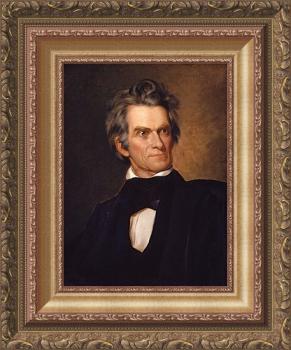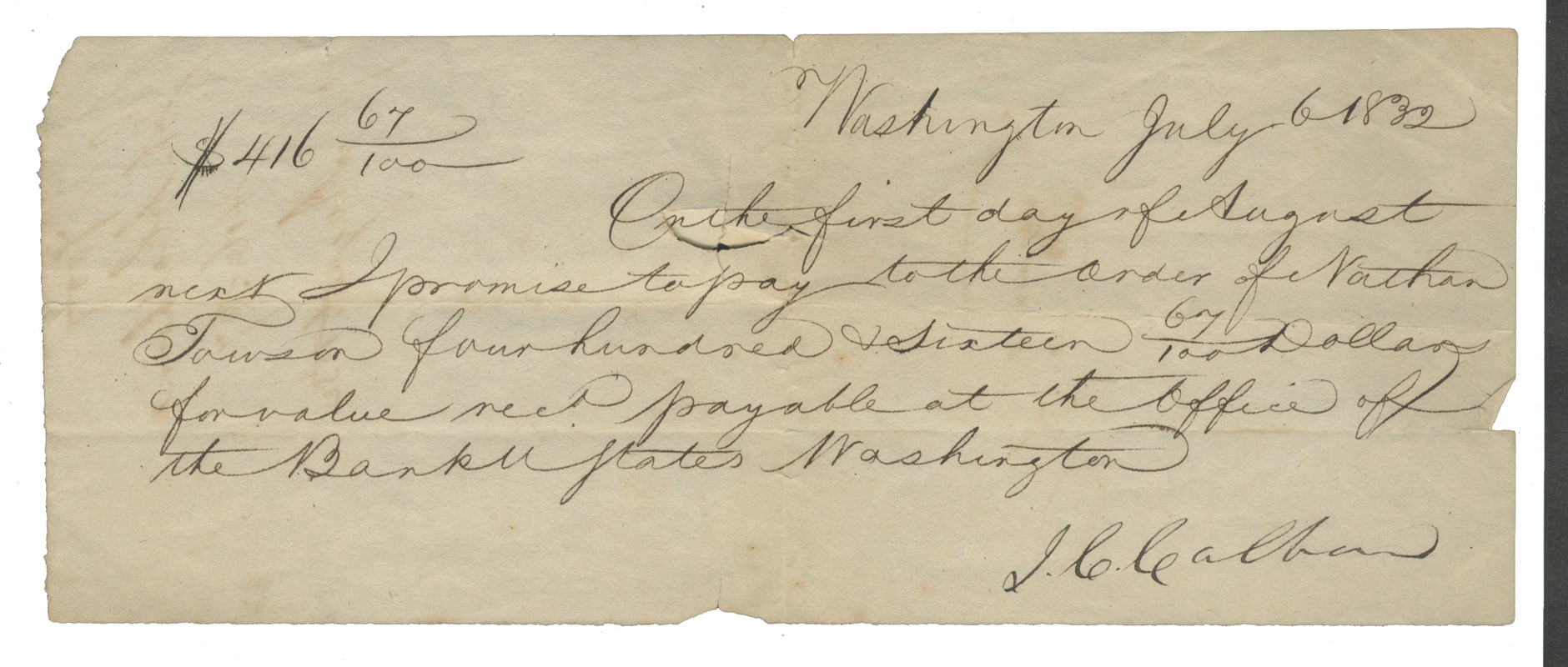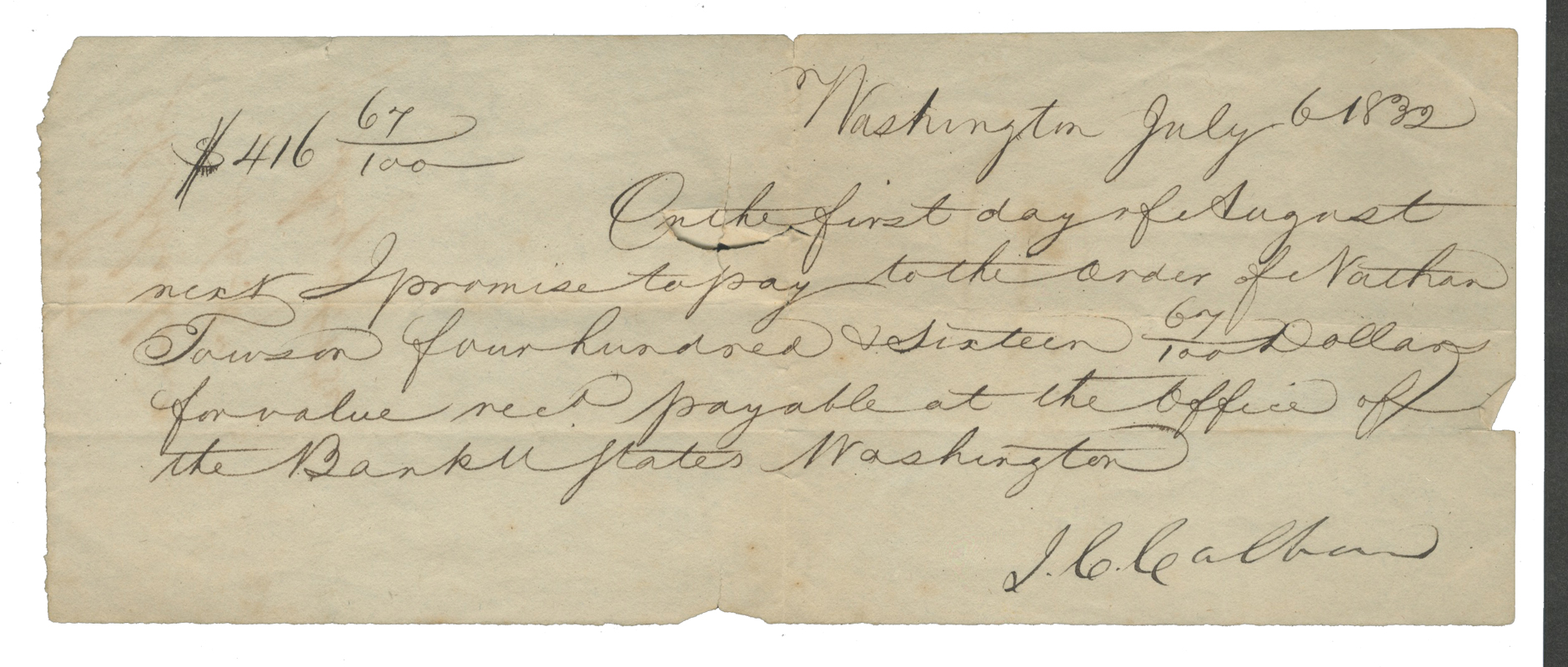John C. Calhoun
John C. Calhoun
John C. Calhoun Document Signed - 1832
Promissory Note signed by U.S. Vice President John C. Calhoun, payable to Nathan Towson, a brigadier general in the United States Army who served as paymaster of the Army after the War of 1812. Measures 3″ x 8″ in very good condition with minor tears to right and bottom. In full:
Washington, July 6, 1832
$416.67On the first day of August next I promise to pay to the order of Nathan Towson four hundred & sixteen 67/100 Dollars for value rec’d payable at the office of the Bank [of the United] States Washington.
J.C. Calhoun

(Image not included; for reference only)
John Caldwell Calhoun (1782-1850) was an American statesman and political theorist from South Carolina, and the seventh Vice President of the United States from 1825 to 1832 under Presidents John Quincy Adams and Andrew Jackson. He is best remembered for being a strong defender of slavery and for advancing the concept of minority rights in politics, which he did in the context of defending Southern values from perceived Northern threats. Later in life, Calhoun became known as the “cast-iron man” for his rigid defense of Southern beliefs and practices. His concept of republicanism emphasized approval of slavery and minority rights, as particularly embodied by the Southern states-he owned “dozens of slaves in Fort Hill, South Carolina.” Shortly after signing this document in 1832, he resigned as vice president and entered the Senate. He sought the Democratic nomination for the presidency in 1844, but lost to surprise nominee James K. Polk, who went on to become president.
Nathaniel Towson (1784-1854), also known as Nathan Towson, was a major general in the United States Army. A career soldier, he fought in the War of 1812 as an artillery officer, served as paymaster of the Army after the war, and was promoted to brigadier general and then major general for his service during the Mexican-American War.


